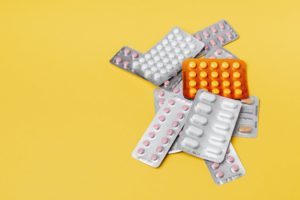To most, mental disorders boil down to being “crazy” and that they are limited to serious ones that warp your mind. That could not be farther from the truth.
Mental problems are a common yet untalked-about problem among people. According to the National Institute of Mental Health (NIMH), about one in five adults in the US live with some form of mental disorder.
Additionally, the causes for these mental problems are also varied: trauma, biological factors, substances, feelings of loneliness, and other ongoing (chronic) medical conditions.
With mental health being a significant and growing concern, mental illness treatments are vital to everyone’s health. In this article, we’ll discuss the different mental health treatments and how each can help.
Mental Illness Defined
Mental illness is health conditions that involve alterations in behavior, emotion, thinking, or a combination of these.
Disorders under this branch of health concerns vary in severity– from mild conditions like depression and anxiety to severe ones like schizophrenia.
Mental Illness Treatments
Treatments for mental health problems are not an all-around cure for each disease. The right one for you would depend on the mental health disorders you have. Some people could do with just one method, while others use a combination of treatments to cure them.
To help you see which one or ones are for you, below is a list of common treatments and what they are.
Psychotherapy
There are many types of psychotherapy, but it’s essentially a therapeutic treatment where you talk to a mental health professional (psychotherapist) about your disorder and associated issues.
During your therapy sessions, you’ll delve into your condition and learn about yourself, feelings, thoughts, and behaviors. Along the way, you’ll hopefully gain insight into how to cope with and manage your condition.
This type of therapy is ideal for those with mild to moderate mental health issues, such as addiction or substance abuse, depression, or anxiety. People not struggling with a mental disorder can also seek out psychotherapy, even if they’re just going through a rough time.

Medication
Medication is not an outright mental illness cure, but it does help manage your symptoms. There’s also plenty of medication for different disorders and they improve the effectiveness of other treatments, such as psychotherapy.
Commonly used classes of prescription psychiatric medication include:
- Antipsychotic medication
- Antidepressants
- Anti-anxiety medication
- Mood-stabilizing medication
Note that you should check with your doctor before taking any kind of medication.
Can you treat mental illness without medication?
Generally, other treatments work better with the help of medications. But yes, you can treat mental disorders without taking them, but it will be more difficult.
In addition to the treatments listed here, exercising is an effective way to cope with mental problems, specifically anxiety and depression.
An article from Harvard Health Publishing says that working out can distract you from what you’re anxious about. More than that, getting your heart rate up alters brain chemistry and increases the availability of anti-anxiety neurochemicals, such as serotonin, gamma-aminobutyric acid (GABA), endocannabinoids, and brain-derived neurotrophic factor (BDNF).
Brain-Stimulation Treatments
Sometimes used to treat depression and other mental disorders, brain-stimulation treatments are reserved for instances when medication and psychotherapy do not work.
This type of treatment includes methods like electroconvulsive therapy (ECT), repetitive transcranial magnetic stimulation (rTMS), and deep brain stimulation.
Make sure you understand the treatment’s benefits, as well as all the risks.
Psychiatric Hospitalization and Residential Treatment Programs
In rare cases, the mental disorder becomes so severe that the individual needs to be closely monitored. This is where hospitalization and residential treatment programs come in.
These types of treatments are recommended for people who can’t take care of themselves or if they’re in danger of harming themselves or others.
Apart from partial or day hospitalization, both options offer 24/7 in-patient care. Patients get a place to live, food, treatment plans, and other amenities.

Dual Diagnosis Treatment
Dual diagnosis treatment is perfect for those struggling with a mental health condition and substance use disorder. This type of treatment deals with and treats both issues at the same time, which is vital to maximizing the chances of making a full recovery.
Support Groups
Support groups help you cope and recover. Members, who are going through similar situations, meet to listen to, learn from, and guide each other toward recovery. Sometimes, a mental health professional is present to facilitate meetings and initiate activities. But the important part is to help each other.
There’s a variety of support groups that help you deal with a wide range of mental health problems, such as:
- Substance abuse and addiction
- Other forms of addiction (e.g., gambling and shopping)
- Depression, anxiety
- Eating disorders
- Other challenging situations (e.g., divorce or losing a loved one)
Self-Help Plans
Self-help plans let you reflect and treat your condition yourself. This unique health plan involves you addressing your mental health problem with strategies that promote wellness.

The plans can also include looking at triggers and warning signs. Understanding these will guide you in developing coping strategies and techniques in how to avoid a relapse.
Get The Help You Need
Although living with a mental health disorder is challenging, it’s not the end of your world. There are a plethora of treatments that can guide you to recovery. However, there is no “one-size-fits-all” kind of treatment. Understanding the best one for your situation is crucial in your recovery journey.
Are you searching for a place that can offer mental illness treatments and has people committed to your long-term recovery? Choose Roots Through Recovery. You can visit us at 3939 Atlantic Ave Suite 102, Long Beach, CA 90807, United States. You may also contact us at 562-352-2035, email us through info@roots-recovery.com, or go to our website.




